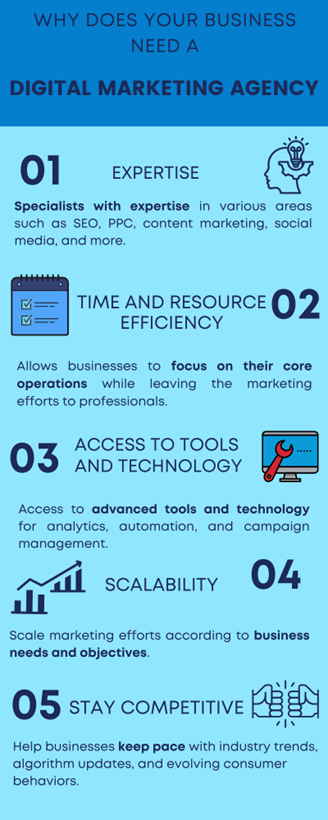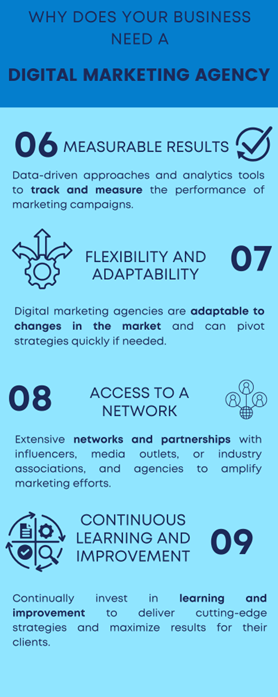How to Choose a Link Building Agency without Spending More Money
Link building remains one of the most important ranking factors for SEO success. However, securing high-quality backlinks can require a substantial investment. When choosing a link building agency, it’s crucial to maximize value and return on investment. This guide provides tips for prioritizing cost-effective strategies, setting a realistic budget, leveraging free resources, understanding pricing models, evaluating efficiency, asking the right questions, monitoring success, and ultimately deciding on the right digital marketing agency.
Prioritizing Cost-Effective Link-Building Strategies
With link building pricing ranging from a few hundred to thousands of dollars per link, it’s essential to focus your efforts for maximum ROI. Here are some of the most cost-efficient link building approaches:
- Content Marketing for Link Building: Creating compelling, keyword-optimized content is one of the best ways to generate organic backlinks, aligning with the overall content marketing strategy.
- Guest Blogging: Writing posts for niche blogs related to your industry is an affordable way to gain contextual backlinks from authoritative sites.
- Influencer Outreach: Securing backlinks from industry influencers often costs less than other paid link building options while boosting credibility.
- Link Reclamation: Reaching out to sites where broken links point to your competitors can provide an easy “link lift” at a low cost.
- Local Link Building: Targeting locally relevant, high-authority sites such as local directories, newspapers, and community organizations can yield affordable organic links.
The most effective agencies know how to combine these cost-effective link building strategies with higher-cost options for maximized return on your SEO budget.
Setting a Realistic Budget for Link Building
Before you start, you must plan the budget. Determining the right budget for your link building efforts requires an analysis of your business’s unique needs and objectives. Approach a link building agency that is an expert in driving targeted traffic to your website.
While benchmarks provide a useful starting point, tailoring your budget to your specific situation is key to maximizing return on investment.
Factoring in Business Size
Your business size plays a major role in determining ideal link building spend. Larger enterprises often allocate more substantial budgets to compete with dominant brands in their space. For example:
- 46% of marketers spend over $10,000 on link building annually.
Small and medium businesses may operate on leaner budgets focused on breakout growth in local markets or niche industries, such as:
- For local SEO, budget 2-5% of projected revenue to be cost-effective.
When assessing business size, also consider the lifecycle stage and associated marketing goals, allowing for flexibility over time.
Considering Industry Competitiveness
Fiercely competitive industries like finance, legal, and medicine often require more extensive link building to stand out. Evaluate factors like:
- Number of authoritative domains linking to top competitors
- Difficulty and cost of securing links from reputable sites
- The pace of link building needed to maintain or gain coveted rankings
Newer industries with lower barriers to entry may call for smaller, steady investments to nurture organic growth.
Analyzing Current vs. Target Rankings
Your current page rankings also determine the intensity of link building needed. Pages starting from:
- The top 3 need maintenance links to defend the position.
- Pages 4-10 call for moderate link building to move up.
- Below 10 require more aggressive strategies and budgets to leapfrog competitors.
Also, consider target keywords and their competitiveness. Budget for the authority needed to rank for high-traffic phrases in your space.
Setting Goals for Key Metrics
To guide budget planning, set monthly or quarterly targets for:
- New linking root domains
- Total new backlinks
- Projected increase in organic traffic
- Growth in keyword rankings
With specific goals defined, you can model and allocate budget across different link building activities accordingly.
Allowing for Flexibility
While benchmarks provide a solid framework, retain the flexibility to adjust allocations across tactics and campaigns according to performance.
Continuously evaluate ROI and optimize budget across channels such as content development, outreach, paid placements, and link reclamation as merited by results.
Leveraging Ideas to Shortlist Agencies
Selecting the right digital media agency is crucial for SEO success. However, thoroughly evaluating multiple prospects takes time and diligence. Following a structured approach leveraging free resources means you can identify the best SEO practices without wasting your budget on an inferior provider.
Review Free Directory Listings
Specialized SEO directories like Moz, Clutch, and GoodFirms enable agencies to create free profiles highlighting their services, experience, clients, and more. Spend time browsing their listings to discover relevant prospects.
- Focus on agencies with proven expertise in your particular industry vertical and location.
- Do existing clients include competitors or similar brands?
- Pay attention to their specific service capabilities.
- Do they offer integrated solutions important to your strategy like content creation and link reclamation?
- Avoid agencies offering only basic guest posting packages unless that aligns with your needs.
- Client reviews on directories provide unbiased perspectives on service delivery, communication, results, and value.
- Look for consistent satisfaction across multiple recent reviews.
Research Online Reviews Extensively
Expand your shortlist research by finding and evaluating online reviews on third-party sites like Yelp, Facebook, BBB, etc. These provide additional validation not found on the agency’s website.
Positive sentiment with detailed descriptions of service experiences indicates satisfied clients.
However, isolated praise could hint at review manipulation which is unfortunately common.
Watch for any concerning complaints deliverables, account management, and reporting. Some criticism is expected but look for thoughtful resolution and reasonable volume. Everyone makes mistakes, good agencies recover well.
Leverage SEO Forums for Insider Recommendations
Tap into crowdsourced reviews within SEO communities like WebmasterWorld, Black Hat World, WarriorForum, and subreddit forums. Launch new threads requesting agency referrals for your particular goals and location.
Engage with responses by asking for specifics around projects executed, communication, and results achieved. Seek actionable details that resonate with your needs rather than vague hype or single-word recommendations.
Monitor related existing threads as well for additional data points. If certain agencies draw repeated praise or complaints, make a note. Balance positive referrals with critical feedback for a complete perspective.
Follow Industry Blogs and Publications
Leading SEO publications like SearchEngineJournal, SearchEngineLand, and SEMrush frequently spotlight agencies through expert reviews and SEO company profiles. Study these articles to discover new prospects and insights.
Look for real examples of successful client campaigns, not just general promotional content. Case studies with quantified ROI data are ideal for gauging capabilities.
Interviews can reveal helpful details on strategy, tactics, and challenges that you won’t find on an agency website. Watch for gaps between claims and delivered outcomes.

Reasons Why Your Business Needs a Digital Marketing Agency
Scrutinize Agency Case Studies
Conduct an in-depth review of case studies featured on shortlisted agency sites. Look for clients as similar to your business as possible for the most relevant demonstrations of expertise.
Analyze the specifics of strategies executed – do they align with your planned approach or fill gaps in your efforts? Case studies should provide supporting data on increased rankings, traffic, and conversions.
Watch for vague claims without evidence or relying mostly on testimonials. Quotes from pleased clients do build confidence, but demand data.
Schedule Intro Calls for Initial Vetting
Once you’ve compiled a shortlist of worthy prospects, schedule intro calls and audits. Come prepared with a list of probing questions about budgets, capabilities, communication practices, and more.
If possible, speak with the actual digital marketing companies who would manage your account rather than just smooth salespeople. You want an authentic view before committing.
Listen closely to how they balance your needs and restraints with recommendations. Do they push pre-set packages or suggest customized solutions tailored to you? Top agencies excel at strategic consultations.
Request Client Referrals
Ask prospects to share contact information for 1-2 existing clients in your niche who can speak to their experience firsthand. Setting up 10-15 minute reference calls builds trust through real talk.
Inquire about deliverables, timeliness, reporting, and results achieved. Would the client hire them again? References unwilling to vouch for an agency should give pause.
Start Small
- Consider negotiating a pilot campaign allowing you to sample the agency’s services before signing a long-term contract. This provides an affordable low-risk test drive.
- Monitor communication, flexibility, adoption of feedback, and transparency throughout the pilot.
- Successful execution and measurable results green light expanded engagement.
- Making the effort upfront to thoroughly vet multiple agencies ensures you find the best link building partner without overspending your budget.
- Leverage all free resources available to validate expertise, experience, and fit.
Understanding Pricing Models and Negotiating Terms
Link building agencies employ a variety of pricing models, each with its pros and cons. Comprehending the options available enables you to determine the best approach for your budget and needs.
Monthly Retainer Pricing
- Involves paying a fixed monthly fee for pre-defined services.
- Provides predictable budgeting and consistent link building activity.
- May limit flexibility to adjust strategies month-to-month.
- Limits risks from an underperforming campaign.
When negotiating retainers:
- Request detailed scope of work and service level agreements.
- Ask about options to scale up or down as needed.
- Clarify reporting frequency and metrics provided.
Per Link/Tiered Per Link Pricing
- Fees based on each link acquired, are often divided into tiers based on authority.
- Directly ties spending to measurable link building results.
- It can incentivize quantity over quality if not managed carefully.
- Difficult to predict the total budget in advance.
Negotiating per-link pricing:
- Set expectations for link quality – relevant, contextual, from reputable sites.
- Institute caps on monthly spending for budget control.
- Require links indexed and live for 30-90 days minimum.
Performance Based Pricing
- Agencies earn commissions based on improved search rankings and traffic.
- Closely aligns incentives with your ROI.
- Provides validation of actual business impact.
- Can limit initial budget predictability.
Optimize performance pricing by:
- Setting minimum thresholds for ranking improvements or traffic increases to trigger commissions.
- Instituting incremental payout tiers tied to measurable results.
- Focusing on high-value keywords with the most revenue potential.
Bundled Services
- Combining multiple services like content promotion or analytics into one contract.
- Simplifies budgeting with a single predictable rate.
- May include “extras” that are not relevant to your precise needs.
To optimize bundled contracts:
- Ensure the bundle includes the exact mix of services you require. Avoid paying for unnecessary add-ons.
- Negotiate discounts for committing to larger bundles long-term.
- Confirm the ability to adjust or cancel specific services as needed.

Reasons Why Your Business Needs a Digital Marketing Agency
Evaluating Agency Efficiency and Cost-Effectiveness
Assessing an agency’s ability to deliver results within budget is critical before engagement. Validating efficiency and value requires analyzing:
Case Studies
Well-documented case studies provide tangible proof of an agency’s capabilities. Look for examples highly relevant to your niche, location, and campaign goals. The optimal case study includes:
- Detailed overview of client business, targets, and strategy
- Precise link-building tactics utilized
- Stats on total links acquired, referring domains, authority metrics
- Rankings before and after for priority keywords
- Actual traffic and conversions increase post-campaign
- ROI calculations demonstrating tangible business impact
Lack of specifics, data, or measurable results should raise concerns. Strong case studies build confidence by demonstrating real-world value delivery.
Client Testimonials
Along with case studies, client testimonials validate satisfaction and performance. However, look for specifics beyond general praise. Ideal testimonials confirm:
- The agency delivered within the pre-set budget
- Positive ROI in the form of higher rankings, traffic, and revenue
- High-quality links from reputable sites
- Responsiveness and transparency
- Overall excellent value for the money
Testimonials tying budget to business outcomes assure cost efficiency.
Sample Link Portfolios
Review sample link portfolios agencies can provide showing links secured for previous clients. Scrutinize link quality by looking for:
- Contextual relevance to client niche
- Links residing on high authority and trust sites
- Natural anchor text, not over-optimized
- Presence of existing traffic and engagement
Low-quality or irrelevant samples indicate inefficient use of link building budgets. An ideal portfolio convinces you of their discernment.
Metrics Tracking
Sophisticated digital marketing agencies will track detailed performance metrics for clients like:
- Monthly new linking root domains and total backlinks
- Average domain authority/page authority
- Keyword rankings changes
- Traffic growth over the base
- Lead and sales conversion rates
Clear documentation of metrics demonstrates diligent monitoring of ROI on link investments. The lack of solid reporting is a red flag.
Evaluating efficiency requires moving beyond promises to verify tangible past performance. Those investments can pay dividends in the form of confident budget allocation and less vetting needed once you’ve picked a cost-effective agency.
Asking the Right Questions During Consultations
The initial consultation provides a pivotal opportunity to assess an agency’s expertise and alignment with your needs before committing. Use this time to ask probing questions, especially around budget management:
Strategy
- How do you develop an integrated link building strategy tailored to our specific business goals and targets?
- What is your process for aligning link building efforts with our broader SEO initiatives and content marketing?
- How do you balance building volume with acquiring authoritative, quality links?
Their responses will reveal strategic vision, integration capabilities, and a grasp of your objectives.
Tactics
- What specific link building tactics do you utilize? How are these selected based on our industry and targets?
- How will you incorporate content development or link reclamation into a cohesive campaign?
- What is your process for monitoring competitor link building activity?
Look for sophisticated methodology beyond basic guest posting and outreach. Competitive intelligence is also key.
Communication
- What does the day-to-day communication and reporting process look like?
- How can I expect to be informed of campaign progress, issues, and developments?
- How readily available will my main point of contact be via phone, email, etc?
The answers portray their transparency, collaboration approach, and customer service.
Budgeting
- How do you optimize budgets across different high-value link-building tactics?
- What cost controls do you employ to ensure links generated are worth the investment?
- Can you work within the budget limitations we face? Where can you find economies without sacrificing results?
Listen for realistic budget management – they should have proven ways to maximize your dollars.
Results
- How do you quantify and track ROI on link-building campaigns?
- What results have you achieved for clients in our industry and situation?
- How could our budgets be tied to performance incentives?
The goal is to validate the ability to deliver measurable outcomes cost-effectively.
Asking the right questions sets you up to determine agency alignment with your situation, needs, and constraints. No two businesses are alike – a consultation allows custom tailoring.
Conclusion
A thoughtful approach is required to maximize your return on link-building investment. By prioritizing cost-effective strategies, setting a realistic budget, thoroughly evaluating prospective agencies, asking the right questions, monitoring metrics, and being ready to pivot approaches based on performance, you can make the most of your budget and build quality backlinks that deliver meaningful SEO results. With some diligence on the front and back end, a partnership with the right agency can provide long-term value that fuels your growth and success online.
FAQ
1. How much should I pay for link building?
The cost of link building can vary widely depending on factors such as the quality of backlinks desired, the expertise of the service provider, and the scale of the campaign. On average, prices may range from a few hundred to several thousand dollars per month.
2. How do I choose the right link building agency without overspending?
Start by identifying your SEO goals and setting a realistic budget based on your business size. Utilize free resources like online forums and industry publications to shortlist reputable agencies. Understand their pricing models, and don’t hesitate to negotiate terms that fit your budget. Evaluate their efficiency and cost-effectiveness through case studies and testimonials to ensure they offer the best value for your investment.
3. What is the best link-building strategy?
The best link building strategy combines a variety of tactics such as guest posting, content marketing, influencer outreach, and digital PR to acquire high-quality backlinks from authoritative websites relevant to your industry or niche.
4. What do you really need to know about link building services?
It’s crucial to choose reputable link building services that employ ethical practices and prioritize quality over quantity. Effective link building requires patience, consistency, and a focus on building genuine relationships with other websites.
5. Is link building expensive?
Link building costs can vary, but it’s generally considered an investment in long-term SEO success. While some strategies may require a significant upfront investment, the returns in terms of improved search engine rankings and organic traffic can outweigh the expense over time.
6. What are some cost-effective link building strategies?
Some cost-effective link building strategies include content creation aimed at generating passive links, guest blogging on relevant sites, and leveraging social media to increase visibility and backlinks. Prioritize strategies that not only attract high-authority links but also align with your content marketing goals to maximize ROI.
7. How much is a good backlink worth?
The value of a backlink depends on various factors including the authority of the linking site, relevance to your website, and the context of the link. High-quality backlinks from authoritative websites can have a significant positive impact on your SEO efforts.
8. Is it illegal to buy backlinks?
While it’s not illegal to buy backlinks, engaging in manipulative or deceptive practices to acquire them violates search engine guidelines and can result in penalties. It’s essential to focus on earning backlinks naturally through high-quality content and genuine relationship-building.
9. What is the future of link building?
The future of link building is likely to involve a greater emphasis on relevance, quality, and user experience. As search engines become more sophisticated, links from authoritative, relevant sources will continue to play a crucial role in determining search rankings.
10. What is a link building strategy for 2024?
In 2024, a successful link building strategy may involve a combination of traditional tactics like guest posting and outreach with newer approaches such as optimizing for voice search, leveraging AI for content creation and outreach, and focusing on building links within niche communities and micro-influencers.



